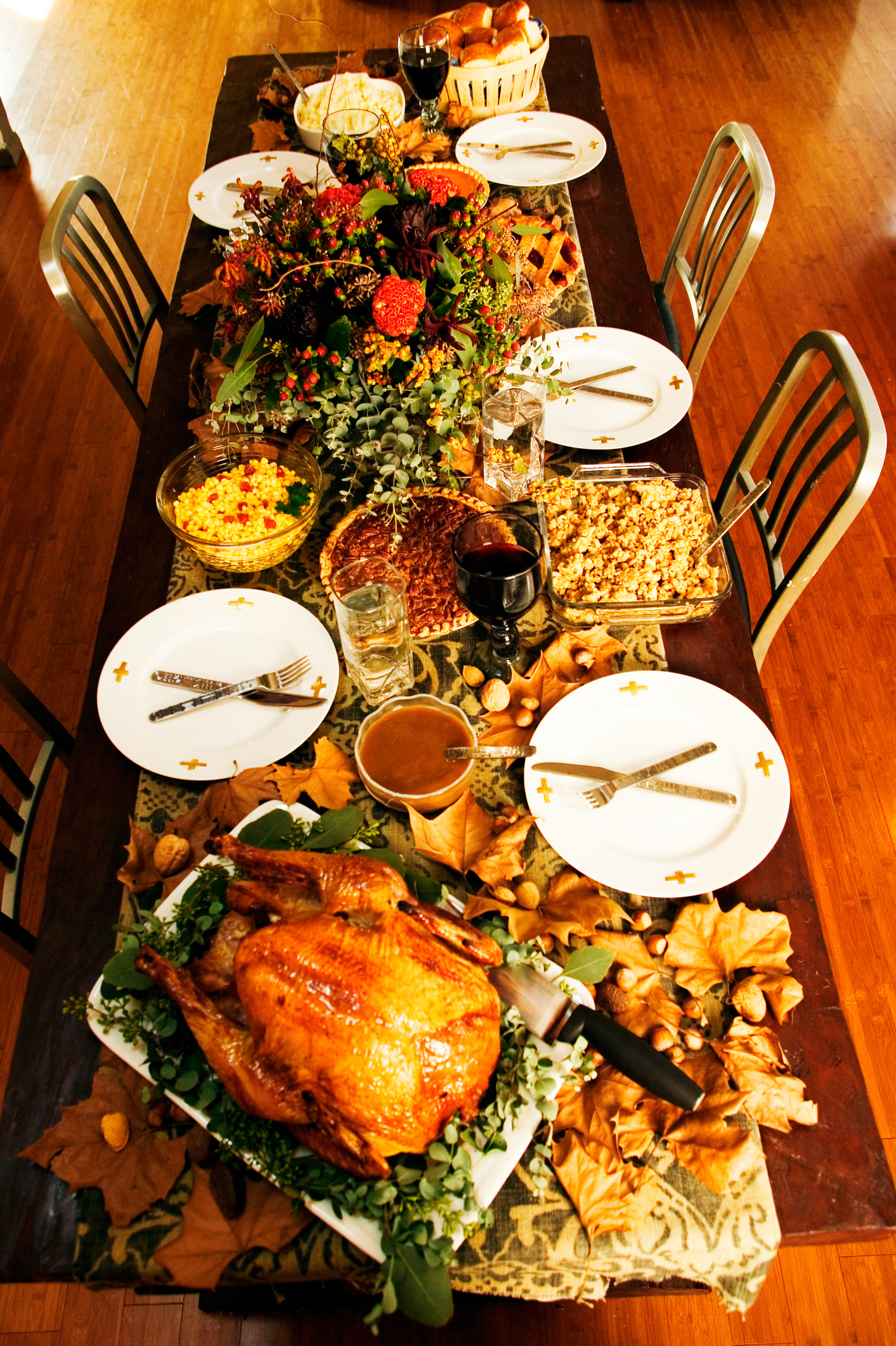
A traditional Thanksgiving dinner includes a roasted turkey, bread stuffing, a myriad of potato dishes, and side dishes ranging from bean casserole to cranberry sauce. The luscious and bountiful feast is followed by dessert, most notably pumpkin pie. Such a feast exemplifies the fall harvest, the bounty grown in and raised on the Earth's soil. This year, you might want to keep to the spirit of this bounty by making your Thanksgiving dinner a more organic meal.
Reading Labels
Farmed turkeys, raised for food, may be given food containing genetically modified organisms (GMOs). These foods are designed to influence certain aspects of growth in the animal, such as larger breasts, and to increase the animal's resistance to disease. Such animal feed is not certified as organic.
An organically certified turkey is raised on organic feed, free of antibiotics, and contains no artificial ingredients, such as flavorings or colorings.
If you want an organic turkey for your table, read the label. The United States Department of Agriculture (USDA) regulates organic certification and works with the Food and Drug Administration (FDA) to regulate labeling. Look for organic certification, and absent that, at least turkeys free of antibiotics and artificial ingredients.
Cooking from Scratch
For a more organic Thanksgiving feast, forego boxed or instant mashed potatoes, stuffing from a box, canned vegetables, gravy from a jar or packet, and pre-made pies. Start with fresh ingredients and cook everything from scratch, using only those foods grown organically.
If the idea of cooking every side dish from scratch, including the spicy filling for your pumpkin pies, overwhelms you, minimize the tasks using foods grown organically and minimally processed.
Many canned foods, such as pie filling, don't require preservatives; the canning process serves as a natural preservative. Look for canned or frozen vegetables that are organically grown and processed without added preservatives, and use fresh ingredients wherever possible.
Serving Drinks
Your feast is filled with natural foods grown organically and free of preservatives. It's only right that such a meal is paired with beverages of equally high standards.
Growing grapes for wine or grains for beer isn't much different than other types of farming. The growers deal with pests and diseases that may negatively affect their yields. They opt to use either chemicals or organic methods for controlling pests and disease.
The labels for beer and wine tell you what ingredients are used to produce the final product, and if the USDA recognizes the product as organic. You may have to search for organic beverages, but if you're serving organic foods, you’ll want the drinks to be free of chemicals as well.
